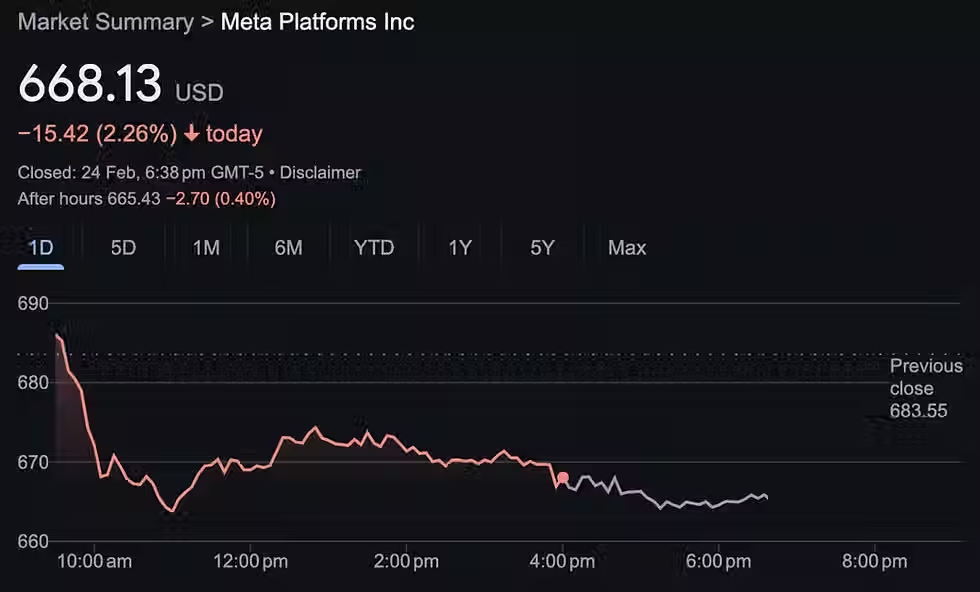Unlocking the Power of Compound Interest: Lessons from Warren Buffett
- Buffett Online School

- Dec 19, 2023
- 4 min read
Ever wondered how Warren Buffett, the legendary investor, amassed the majority of his wealth after turning 60? It's not just about luck or being in the right place at the right time.
Buffett's success story is deeply rooted in a simple yet powerful concept: compound interest. Let's dive into the fascinating world of compounding and learn how you too can harness its potential to build wealth over time.
Who Is Warren Buffett?
Warren Edward Buffett is an American businessman, investor, and philanthropist. He is widely recognized as one of the most successful investors in the world. Currently, he serves as the co-founder, chairman, and CEO of Berkshire Hathaway, one of America’s foremost holding companies and a leading corporate conglomerate globally.
Buffett was born on August 30, 1930, in Omaha, Nebraska. His interest in business and investing developed during his youth. He attended the Wharton School of the University of Pennsylvania and later graduated from the University of Nebraska at the young age of 19. He further honed his investment philosophy at Columbia Business School, where he embraced the concept of value investing pioneered by Benjamin Graham.
Throughout his career, Buffett has adhered to the principles of value investing and demonstrated remarkable frugality despite his immense wealth. He has been referred to as the “Oracle” or “Sage” of Omaha due to his substantial fortune derived from business and investment success.
Notably, Buffett has pledged to give away 99% of his fortune to philanthropic causes, primarily through the Bill & Melinda Gates Foundation. In 2010, he co-founded the Giving Pledge with Bill Gates, encouraging billionaires to commit to donating at least half of their wealth.
As of March 2024, Warren Buffett’s net worth stands at $134 billion, making him the seventh-richest person in the world1. His legacy extends beyond financial achievements, as he continues to impact the world through his philanthropy and investment wisdom.
The Magic of Compound Interest

Compound interest is a financial concept that applies not only to the initial principal of an investment or a loan, but also to the accumulated interest from previous periods. In other words, it involves earning (or owing) interest on your interest. Let’s break it down:
Definition
Compound interest is interest calculated on both the initial principal and all of the previously accumulated interest.
It’s like interest compounding over time, creating a snowball effect that accelerates the growth of your money.
How It Works
Imagine you invest a sum of money or take out a loan. With compound interest, the interest earned (or charged) in each period is added to the principal for the next period.
This means that when the next interest period arrives, it takes into account the total balance, rather than just the initial principal.
The power of compounding helps your money grow faster than if simple interest were calculated on the principal alone.
Formula
The formula for calculating compound interest is:

Example
Let’s say you have a 3-year loan of $10,000 at an interest rate of 5%, compounding annually.
The total amount after 3 years would be calculated as follows: 10,000(1+(0.05/3)^(1x3)= $10,929.27
Note that this interest amount is not the same as it would be with simple interest.
The Rule of 72
Another way to estimate compound interest is using the Rule of 72.
Divide 72 by your rate of return to find out how long it will take for your money to double in value.
For example, with a 4% return, your money would double in 18 years (72 / 4 = 18).
In summary, compound interest is your friend when it comes to savings and investments, as it multiplies your money at an accelerated rate. However, if you have debt, compounding interest can make it increasingly difficult to pay off. 🌟📈💰
At the heart of Buffett's wealth-building strategy is the concept of compound interest. Imagine a snowball rolling down a hill, gathering momentum as it grows bigger with each roll. That's compounding in action. Similarly, when you reinvest your earnings and they earn more earnings over time, your wealth snowballs, leading to exponential growth.
Buffett's Compound Interest Journey
Visualizing Buffett's compound interest journey is awe-inspiring. By the time he turned 60, Buffett's net worth was around $3 billion. However, the overwhelming majority of his wealth accumulation occurred after this milestone. Compounding interest transformed his wealth from millions to billions, showcasing the true power of this financial phenomenon.
Buffett's hypothetical scenario of earning a modest 10% return on his $100 billion net worth illustrates the power of small percentage gains. In just one year, a 10% return would translate to a staggering $10 billion in profits. This is three times more than his entire net worth at 60. It underscores how even seemingly small gains can lead to monumental wealth growth over time.
Conclusion
In conclusion, Warren Buffett's journey teaches us valuable lessons about the importance of persistence, starting early, and leveraging the power of compound interest. By staying invested for the long term and allowing your investments to compound, you too can unlock the potential for exponential wealth growth. So, embrace the Buffett mindset, and let compounding work its magic on your financial future.




In the fast-growing world of online betting, Mahadev Book stands out as a one-stop platform that brings excitement, security, and convenience together. Designed for both beginners and seasoned players, it offers a seamless betting experience across a wide range of sports and casino games. From live cricket wagers to thrilling casino slots, users can enjoy everything under one trusted roof.
Looking to add a touch of elegance to your walls? Discover Hey Concrete’s premium wall panels in India, handcrafted with ultra-high-performance concrete. Durable, eco-friendly, and available at the best prices. Call now at- 8107719987 or visit our website to get started!
Mahadev Book is a trusted online betting platform that brings together sports enthusiasts and casino lovers under one secure hub. Known for its user-friendly interface, quick registration process, and reliable services, it allows users to explore a wide range of betting options including cricket, football, casino games, and more. With features like real-time updates, instant withdrawals, and 24/7 customer support, Mahadev Book ensures a smooth and transparent betting experience.
link link link link link link link link link link link link link link link link link link link link link link link link link link link link link link link link link link link link link link link link link link link link link link link link link link link link link link link link link link link link link link link link link link link link link link link link link link link link link link link link link link link link link link link link link link link link link link link link link link link link link link link link link link link link link link link link link link link
link link link link link link link link link link link link link link link link link link link link link link link link link link link link link link link link link link link link link link link link link link link link link link link link link link link link link link link link link link link link link link link link link link link link link link link link link link link link link link link link link link link link link link link link link link link link link link link link link link link link link link link link link link link link link link link link link link link